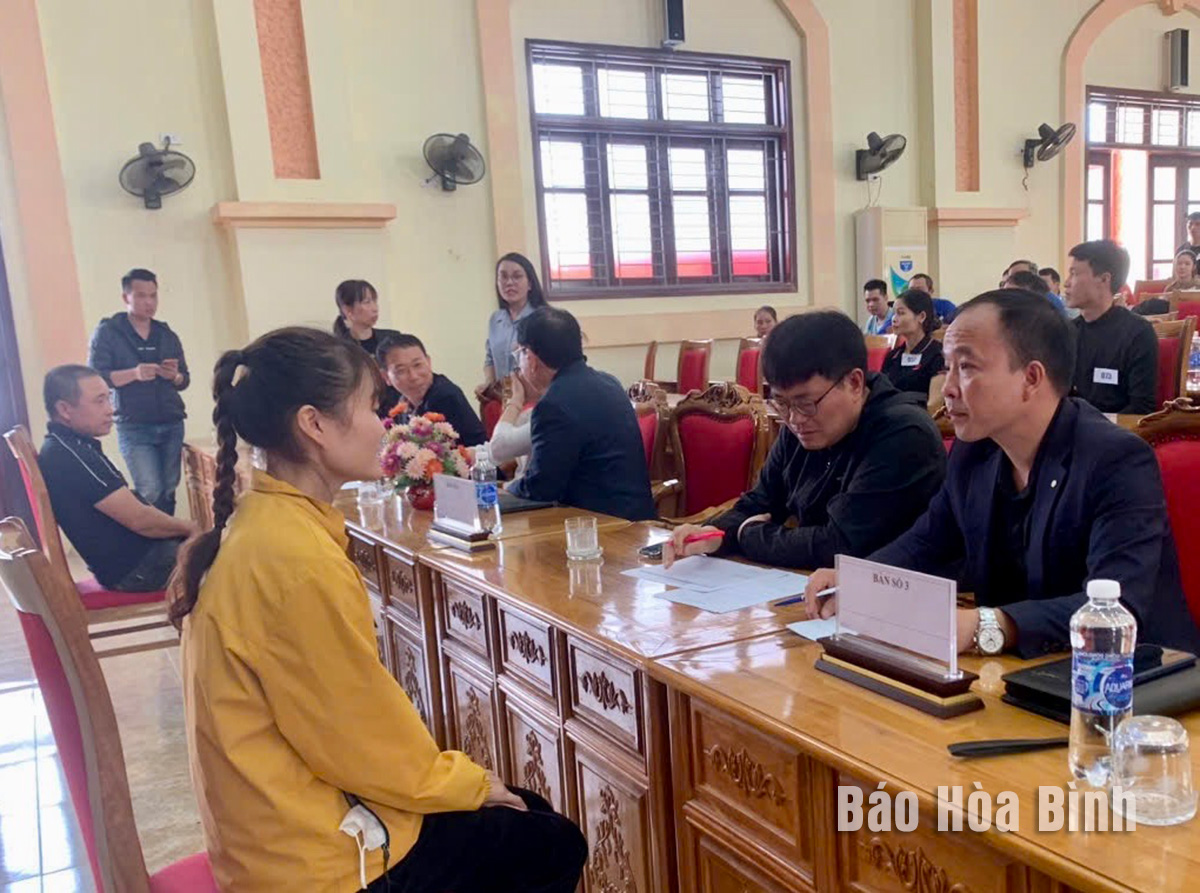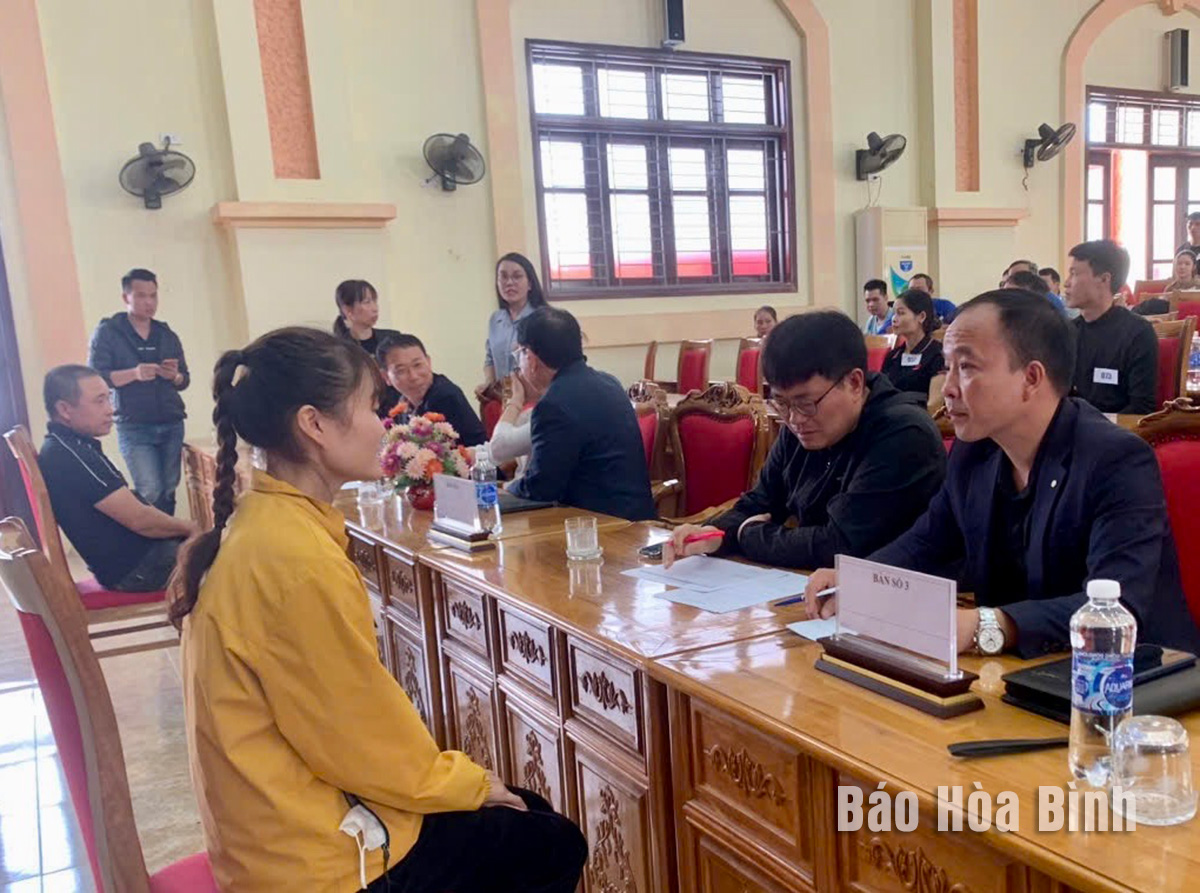
The pilot programme for sending Vietnamese workers to the Republic of Korea (RoK) for seasonal agricultural jobs continues under a collaboration between localities of the two countries, running for five years from January 1, 2022.
On December 5, the Hoa Binh provincial Department of Labour, Invalids and Social Affairs, in coordination with the provincial Department of Public Security, the Da Bac district People’s Committee, and other relevant agencies, held a working session with a delegation from Buyeo district in Chungcheongnam province of the RoK. The session also included interviews and the selection of workers for seasonal agricultural jobs in Buyeo.
Buyeo district’s businesses directly conduct interviews and select workers from Da Bac district to work in the RoK for the first phase.
A total of 139 workers from Da Bac town and the communes of Muong Chieng, Tan Minh, Tu Ly, and Hien Luong registered and gathered at the recruitment location for the selection process.
According to the Department of Labour, Invalids and Social Affairs, 39 workers were chosen for the first phase, meeting specific criteria, including being aged 25-50 years, having at least a middle school education, current employment in agriculture, permanent residency in the province for at least five years; full legal capacity, no criminal records, and no restrictions on leaving the country. Priority was given to workers from poor or near-poor households, those with relatives who contributed to the revolution, or households affected by agricultural land confiscation.
Once in Buyeo, the selected workers will engage in tasks related to harvesting, planting, and managing agricultural crops such as apples, chilies, potatoes, and vegetables. The programme ensures that all labour conditions and rights are adhered to, including standard working hours of no more than 8 hours per day, 48 hours per week (6 days per week), and no more than 208 hours per month. Workers are entitled to at least 1 hour of rest for every 8 hours worked and 4 days off every 30 days. Wages, insurance, and healthcare are all provided in compliance with the RoK's regulations.
Employers are also responsible for providing safe, free housing equipped with cooling devices for summer, heating and hot water systems for winter, interior locks, and fire alarm systems, ensuring optimal living conditions for the workers.
The programme facilitates the seasonal deployment of workers to the RoK twice a year, with the first group set to work in January to June, and the second from July to December. The number of workers selected depends on annual announcements from Buyeo district and approval from the Korean Ministry of Justice. The 39 workers selected from Da Bac district are expected to depart for the RoK in January 2025.
The emulation movement "Hoa Binh joining hands to build new-style rural areas” has been widely spreading, becoming a driving force that motivates the localities to renew rural landscapes and improve the material and spiritual lives of the residents. In this movement, the people play a central role-both as the main implementers and direct beneficiaries of its outcomes.
In response to the global digital revolution, Hoa Binh Newspaper is transforming itself into a modern and multi-platform media hub, blending cutting-edge technology with a restructured newsroom and a new generation of tech-savvy journalists.
Hoa Binh province’s Association of the Elderly recently held a conference to review the project on expanding the inter-generation self-help club model until 2025.
In a move to implement Resolution No. 57-NQ/TW, issued on December 22, 2024 by the Politburo, which targets breakthroughs in science-technology development, innovation, and digital transformation, the Hoa Binh provincial Department of Health has issued a plan to roll out the "Digital Literacy for All” campaign within the local health sector.
An Nghia Commune (Lạc Sơn District) is one of the communes that achieved the tha standard of the national new rural area in 2018. Entering a new development phase, the commune is now trying to meet the criteria for the advanced new rural development. With the strong political will and the public consensus, the commune is gradually overcoming the challenges to reach this goal, aiming for the sustainable development.



